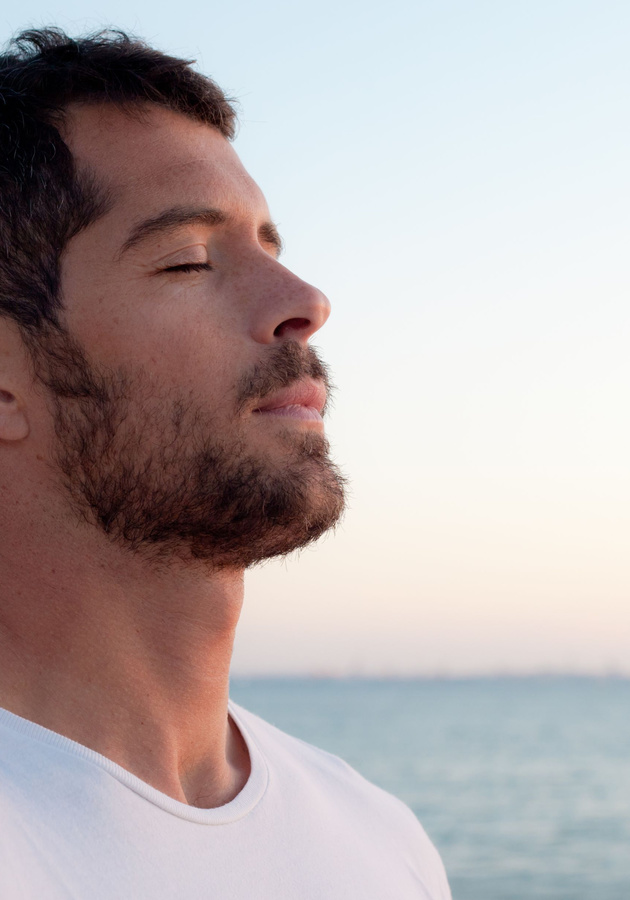When do people feel most happy? The intent of Mihaly Csikszentmihalyi’s seminal 1990 book “Flow” is “to use some of the tools of modern psychology to explore this very ancient question.” But don’t expect a straightforward answer, such as a catalog of happy experiences or lists of immediately applicable dos and don’ts; instead, expect a voyage through the realms of the mind and wide-ranging theory of what happiness actually is that might just alter the way you move through life.
So, get ready to examine the process of achieving happiness through control over your inner life and prepare for a reinterpretation of the nature of our optimal experiences.
Happiness, that elusive goal
Twenty-three centuries ago, Aristotle concluded that men and women seek happiness more than anything else and that happiness is the ultimate objective. After all, it is only happiness that we seek for its own sake: we value everything else – whether health, beauty, money, or power – only concerning if it can make us happy. In the opposite case, nothing makes sense: even if you are the richest individual in the world and loved by someone described as the most beautiful person by all relevant magazines, you’ll readily exchange these things for something else if they don’t make you happy.
Now, a lot of things have changed since Aristotle’s time: we live in a far more prosperous age than the ancient Greeks did, and we know so much more about the world than them. And yet, one can argue that we’ve made no progress whatsoever on this all-important subject of the nature of happiness: neither we understand what it is better than Aristotle, nor we know how to attain it better than his contemporaries.
Objectively, we should be far happier. As a whole, we are much healthier, and we live much longer than anyone has ever lived in the history of humanity. Moreover, the less fortunate among us are surrounded by luxuries undreamed of until just a few decades ago: chairs and bathrooms were rare even in the richest medieval houses, and Rockefeller himself wasn’t able to search Google for last-minute news or binge-watch a Netflix TV show.
The paradox? Most modern humans are much less happy than their ancestors, spending most of their time in boredom and anxiety and ending up with the feeling that they wasted their lives. Why? Are we destined to remain unfulfilled no matter what happens? Or are we simply searching for happiness in all the wrong places?
Being happy means being in control
The good news is that happiness is attainable; the bad news is that it is not what most people think it is. Namely, it is not a phenomenon that exists inside or even outside some experiences: it is something we can add to all of them. Intentionally looking for good things is a dead end: the best we can do if we want to be happier is to prepare ourselves properly for all things that come in life.
“We cannot reach happiness by consciously searching for it,” writes Csikszentmihalyi. “It is not the result of good fortune or random chance. It is not something that money can buy or power commands. It does not depend on outside events, but, rather, on how we interpret them. Happiness is a condition that must be prepared for, cultivated, and defended privately by each person. People who learn to control inner experience will be able to determine the quality of their lives, which is as close as any of us can come to being happy.”
Such a sentence might seem pessimistic at first, but it is actually the opposite. Contrary to what most self-help books will tell you, the majority of the forces that shape our lives are outside our control. We can choose neither our genes and physical appearance nor the family and the historical period into which we will be born. However, we can choose what we do with them.
And there are, indeed, those rare moments in life when, despite everything, we feel like we’re in control of our actions when we feel as if we are – as that memorable William Ernest Henley poem says – masters of our fates and captains of our souls. Csikszentmihalyi believes that this is the happiness we all strive for. It is these exhilarating moments that make life worth living because they startle us and overwhelm us with “a deep sense of enjoyment that is long cherished and that becomes a landmark in memory for what life should be like.” These are the optimal experiences.
The optimal experience is all about putting in some effort
An optimal experience is, in the simplest terms, “something that we make happen.” It is what sailors feel when they hold a tight course as the wind whips through their hair, it is what painters experience when immersed in their visions, they add a new layer of paint to the canvas. Time stops in these moments, and the person, the activity, and the environment all merge and fuse into something grander, something that exists outside the confines of our world. Of course, these two are just illustrations: for each person, there are thousands of opportunities to make something happen and hundreds of different levels of difficulty and effort depending on their age and skills.
But difficulty and effort are not optional: happiness seems to exist because of them, not despite them. The “passive, receptive, relaxing times” are not the best moments in our lives, these are only enjoyable when earned, and when you’ve worked hard to attain them. Just sitting in front of the TV when bored won’t make you happy since happiness is usually the product of struggle, the end-result of when “a person’s body or mind is stretched to its limits in a voluntary effort to accomplish something difficult and worthwhile.”
To enjoy a Netflix show in your bed tonight, you first need to meet your goals for the day, fulfill your obligations, take control of what’s thrown at you by the forces you can’t influence. This, of course, is not easy; it can even be painful. But, in the long run, “optimal experiences add up to a sense of mastery – or perhaps better, a sense of participation in determining the content of life – that comes as close to what is usually meant by happiness as anything else we can conceivably imagine.”
Flow, the nature of the autotelic experience
We rarely participate in determining the content of our lives. We don’t like our colleges, we don’t care for our jobs, and we listen to other people talk while browsing Instagram on our smartphones. It’s the way we do most of the things in life because we need to – not because we like to. Even more: it’s how we do them because they are springboards to something else.
We study to get a job and work to earn money; we save the money we earn to buy a house and a car or to pay for our wedding and our children’s education. But, happiness – as Aristotle so aptly observed – is a goal in itself and, thus, can never be brought about when you’re doing something to achieve something else. Happiness arises only when you transform your everyday events into autotelic experiences.
The term “autotelic” is Greek in origin and means “self-contained” (“auto” means “self,” and “telos” means “goal”). Self-contained activities are the ones you do not “with the expectation of some future benefit, but simply because the doing itself is the reward.” These are the optimal experiences: the future becomes irrelevant because you’re in control of the present and can lose yourself in the moment.
Csikszentmihalyi writes that autotelic experiences “lift the course of life to a different level. Alienation gives way to involvement, enjoyment replaces boredom, helplessness turns into a feeling of control, and psychic energy works to reinforce the sense of self, instead of being lost in the service of external goals. When experience is intrinsically rewarding, life is justified in the present, instead of being held hostage to a hypothetical future gain.”
This is the state of flow, more colloquially known as being “in the zone.” It is a state in which “people are so involved in an activity that nothing else seems to matter; the experience itself is so enjoyable that people will do it even at great cost, for the sheer sake of doing it.” And the experience is so enjoyable because, internally, it creates order in our constantly anxious consciousness. This, in turn, happens because, during autotelic experiences, our attention is invested in realistic goals, and because our skills match the opportunities for action.
In other words, we stop worrying about anything other than the task at hand: we somehow convince ourselves that, momentarily, we must forget everything to do this one thing properly. As a result, our brain blocks out everything that isn’t mean to this end, basically short-circuiting our genetically programmed desire for instant gratification and allowing our whole bodies to focus on something bigger and more rewarding.
Four rules for developing an autotelic self
In summary, it is not the experiences themselves that are objectively pleasurable – but we can turn them into such. So, to be happier, you don’t need to strive to set a successful startup or buy a yacht – you just need to do your best to develop a more autotelic self: that’s the only way you can transform potentially entropic occurrences into the flow. Fortunately, the rules for developing such a self are simple and can be summarized as follows:
- Setting goals. What differentiates people with an autotelic self from those without one is the awareness of the former that it is they who have chosen whatever goal they are pursuing. Put otherwise, if you don’t choose your course in life, life will choose it for you – but you won’t enjoy the adventure. On the other hand, if you have clear goals to strive for, you’ll know which challenges you’ve accepted beforehand and will be able to retain greater control over your life. And remember: happiness is what stems from having control.
- Becoming immersed in the activity. Once you’ve chosen your course, you need to grow deeply involved with it. It was your choice, after all, so don’t make the mistake of participating partially! Don’t be the person who goes to a party and withdraws into the corner, hoping somebody will notice him. Be the one who “joins” the party, who explores, who plunges in the experience of finding a compatible companion, if only just to enjoy the night. That’s why you came to the party, isn’t it? Use the occasion for what the occasion is meant for. Because only when your actions are appropriately matched with the opportunities offered by “the action system” – be that action system a party or a romantic date, a medical school or a swimming race – you can truly become involved in an activity.
- Paying attention to what is happening. Involvement is a corollary of focus: the more concentrated you are doing something, the less chance there is for your self-consciousness, “the most common source of distraction,” to stir you out of your immersion. Paradoxically, being conscious of what you’re doing and worrying about yourself will alienate you from your being, and the precise opposite – paying attention to the action system – will bring about your growth. “The autotelic individual grows beyond the limits of individuality by investing psychic energy in a system in which she is included,” writes Csikszentmihalyi. “Because of this union of the person and the system, the self emerges at a higher level of complexity.” Learn to be like the heavyweight fighters who don’t even have a choice but to pay close attention to what is happening: in their case, a momentary lapse will probably lead to them ending up knocked out. Not much is different in the ring of happiness.
- Learning to enjoy immediate experience. The world is essentially meaningless, and “a relaxed, laissez-faire attitude is not a sufficient defense against chaos.” So, enjoying your immediate experiences doesn’t entail a hedonistic approach to life. On the contrary, it means acquiring the skills, determination, and discipline to transform random events into the flow. To sustain enjoyment, you need to be creative and resourceful, you need to be able to frame everything that life will throw at you into a meaningful, sequential, and all-connecting narrative. And that requires a lot of effort. But nobody said that living in the now is easy: after all, you don’t get in control of your mind overnight. But once you do, everything can be a source of joy.
Final Notes
Consciously avoiding “footnotes, references, and other tools scholars usually employ in their technical writing,” “Flow” is as direct and as user-friendly as possible. Yet, it is not a self-help book with insider tips on how to be happy.
It is something more: the first step on “a circuitous path” toward transforming your boring and meaningless life into one full of enjoyment. This should begin when you achieve control over the contents of our consciousness. And that begins with you reading this book.
12min Tip
Stretch yourself: reach toward higher challenges and attune your actions to these goals. That is not only the secret of happiness but the secret of growth and becoming “an increasingly extraordinary individual.”





























